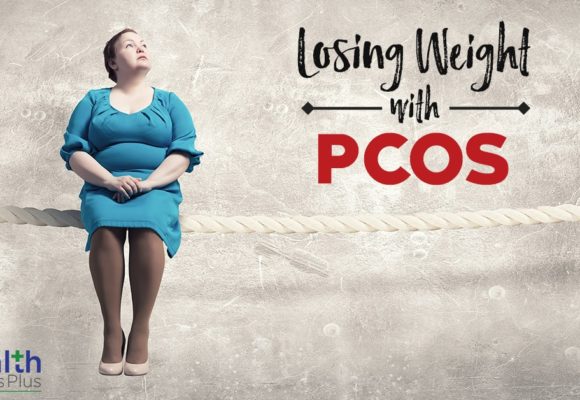1) Grab a FREE copy (Value $14.95) of one of my books Thyroid Symptom Overload
Just pay shipping $7.95 for any US orders. Or, if you want to pay full price plus shipping, order from Amazon :)
2) Take our Thyroid Quiz today and find out what "Thyroid Type" you have
This quiz will help you quickly discover where your symptoms are stemming from.
3) Join Our Thyroid Advocate Membership Site - Natural Thyroid Academy
FREE for a limited time. No credit card required.
4) Work with me and my team privately
Schedule your FREE 15 minute phone consultation and we can find out the best way to help you specifically.
Are you having trouble losing stubborn weight? We all hop on the scales when our favorite dress does not fit us anymore, or we have to hide the fat ball on our tummy with a cushion in the party, or maybe when we visit the doctor. Most importantly, we check our weight before an event…before attending someone’s birthday or wedding. And when it is your big day, you want to hide all those small fatty marshmallows poking out from here and there on your body.
Even after eating portion sizes, skipping all the cheat days, working out seven days in the gym, and worse, bearing all the weight loss suggestions by everyone around, you may still not succeed in shedding a pound. Why does this happen? If you are following a healthy routine, chances are you may have an underlying medical condition that is resisting weight loss.
Medical science suggests that if you have an underlying health condition, you should treat it first, because obesity and inability to lose weight can be the symptoms of a medical condition, not the real problem. The following are the common medical conditions that prevent weight loss.
Polycystic Ovarian Syndrome
At least 5 million American women suffer from Polycystic Ovarian Syndrome and many women have not been diagnosed yet. Polycystic Ovarian Syndrome is usually caused due to hormonal imbalance, which may be triggered by unhealthy lifestyle or any other underlying medical condition.
An excerpt from the research published by Lisa J Moran et al suggests:
“Dietary weight loss is recommended as the primary treatment strategy; however, effective means of achieving and maintaining weight loss and reproductive and metabolic improvements are unknown. Lifestyle modification programmes with an emphasis on behavioural management and dietary and exercise interventions have been successful in the general population in reducing the risk of diabetes and the metabolic syndrome, and have had some initial success in improving fertility outcomes in PCOS.”
Symptoms
- Excessive facial hair
- Irregular menstrual cycle
- Excessive hair fall
- Difficulty getting pregnant
- Clogged skin pores or acne
- Unexplainable weight gain
Hypothyroidism
The thyroid, the organ that regulates metabolic and hormonal functions in the body releases two hormones in the blood. Hypothyroidism is a medical condition when the thyroid produces insufficient hormones. Hypothyroidism is often left untreated as its diagnosis is deceived by symptoms that link to other medical conditions as well. There are more than 3000 symptoms that link to hypothyroidism.
Symptoms
- Irregular menstrual cycle
- Excessive hair fall
- Difficulty getting pregnant
- Unexplainable weight gain
- Fatigue and exhaustion
- Constipation
- Thick tongue
Type 2 Diabetes
Type 2 diabetes is one of the leading causes of obesity. It is a condition when the human body stops responding to its natural system of sugar regulation. It is becoming more common among teenagers and children. According to the medical doctors, sedentary lifestyle, lack of physical activity, and an unhealthy diet rich in processed and refined foods is one of the major concerns in Type 2 Diabetes patients.
Symptoms
- Frequent urination
- Dry mouth
- Unexplainable weight gain
- Blurred vision
- Fatigue
- Headaches
- Increased hunger
- Increased thirst
Cardiovascular Disease
According to the American Heart Association, heart diseases that involve heart and blood vessels are categorized as cardiovascular diseases. The regular blood flow is interrupted in these diseases, leading to poor blood supply to other parts of the body. Heart attack, heart stroke, and heart failure are the worst stages of cardiovascular diseases.
Symptoms
- High blood pressure
- Obesity
- Increased cholesterol and lipid
- Chest pain or chest discomfort
- Pain, numbness or coldness in the legs
- Pain in upper abdomen or back
Cushing’s Syndrome
When the adrenal glands produce excessive cortisol, fat accumulation starts in the body. The abnormally high cortisol levels in the body are identified as Cushing’s Syndrome. The disease is more common among women than men. It may occur as early as 25 years of age. A majority of the cases of Cushing’s Syndrome are curable.
Symptoms
- Obesity
- Fatty deposits in the midsection, neck and around face
- Purple stretch marks on thighs, abdomen, arms and breasts
- Fatigue
- Muscle weakness
- Thinning skin
- Acne
- Bone loss
- Increased thirst
- Increased urination
- Depression
- Cognitive problems
Hyperinsulinemia
Insulin resistance is a primary cause of Hyperinsulinemia. The disease is often linked to Type 2 Diabetes, but it is not diabetic in nature. Hyperinsulinemia is a condition in which, the pancreas is required to secrete excessive insulin to balance the blood sugar. Among many causes, the development of a tumor in the pancreas is becoming more common with time.
Symptoms
- Sugar cravings
- Weight gain
- Anxiety
- Difficulty concentrating
- Intense hunger
- Fatigue
- Lack of motivation or focus
Depression/Stress
Depression is common and serious, but is often an overlooked psychological disorder that directly affects various cognitive and behavioral patterns, such as the way you think, perceive, make decisions, and daily activities including sleeping and eating.
Depression has various categories including persistent depressive disorder, psychotic depression, perinatal depression, bipolar disorder, and seasonal affective disorder. Depression and stress have been directly linked to disruptive mood and mood-triggered eating disorders, which may lead to obesity. On the other hand, depression and stress cause hormonal imbalance, which may cause obesity.
Symptoms
- Feelings of guilt, helplessness, and worthlessness
- Pessimism
- Difficulty concentrating
- Weight changes
- Loss of interest
- Weight gain
- Suicidal thoughts or attempts
- Digestive problems
- Difficulty sleeping or oversleeping
- Digestive disorders
- Headaches or cramps
Besides these common diseases that are linked to obesity, there could be other underlying medical conditions linked to your unexplainable weight gain. Therefore, it is ideal to contact your medical doctor for a thorough checkup. If you have done that already and are frustrated because you still don’t have any answers , feel free to call us and find out what your DNA Uprint reveals about you.
References
http://www.sciencedirect.com/science/article/pii/S1472648310611820
https://www.webmd.com/diet/obesity/features/why-arent-you-losing-weight#1
http://www.health.com/health/article/0,,20429749,00.html
https://www.verywell.com/physical-barriers-to-weight-loss-3496388
http://www.health24.com/Diet-and-nutrition/Weight-loss/7-factors-that-prevent-weight-loss-20120721
https://www.nimh.nih.gov/health/topics/depression/index.shtml








